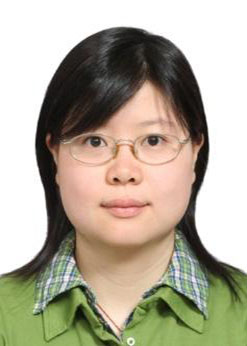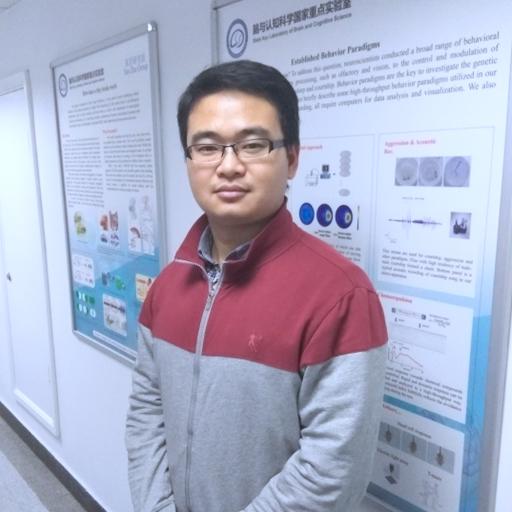
PhD, Professor, Principal Investigator
The human brain has 100 billion interconnected neurons that mediate every thought and action of our everyday lives-like reading this sentence. How does the brain work? I am interested in the neural basis of animal behavior, particularly how visual information is computed by neural networks. Using Drosophila as a model system, which has ~500,000 times fewer neurons than humans, I study the molecular, genetic, and functional mechanisms by which observable behaviors are orchestrated through specific neural circuits. Under laboratory settings, normal Drosophila exhibit robust and stereotypic behaviors that can be readily observed, such as visually guided locomotion, intraspecific communication, and long range odor localization. Integrating molecular neurogenetics and quantitative behavioral analysis, I study the behavioral deficits of animals that have specific neural circuits genetically inactivated. Furthermore, I apply physio-behavioral assays on genetic mutants to rapidly evaluate the roles of underlying genes in the organization and modulation of the animal behaviors.

PhD, Associate Professor
My research covers a broad array of seemingly diverse topics. All of my projects were born from a long-standing interest in understanding how the brain control our behaviors. Recently, my research focuses on social approach behaviors, because social motivation deficits are common phenomena of mental disorders, such as autism, depression, and anxiety disorder.

Graduate Student
I am interested in combining imaging with Drosophila genetics to understand neural basics and molecular mechanisms of behaviors. My current work focuses on studying collective behavior and homeostasis of water and ion in Drosophila. I like yoga, belly dance, swimming and cooking.

PhD.
Hu Shaowei is a 2010 graduate of College of Sciences, Anhui Normal University, where he received a BA in life science. He rotated in the lab of Jinhui Wang, working with Zhao Jun on whisker stimulated activation of barrel cortical neurons via Two-Photo Microscope in 2012 in Institute of Biophysics, Chinese Academy of Sciences and went on to earn a PhD in neuroscience in our lab in 2017. His graduate works focus on neural and molecular mechanisms of aggressive behavior and courtship behavior in Drosophila. Currently, Shaowei is studying the mechanisms that mediate sex desire of males of Drosophila.

Graduate Student
My name is Haiying Ye. Now, I’m study for my master's degree in Institute of biophysics, Chinese academy of sciences. My supervisor is professor-Yan Zhu and my research direction is to explore feeding behaviors and the energy metabolism of molecules and neural mechanism in the Drosophila melanogaster.

Graduate Student
Joined Zhu lab and started my study for doctor’s degree in 2015. Interested in the motor coordination in Drosophila, like how different body parts in flies coordinate with the others and how external stimuli are represented in nerve system then affect behavior. Neuroscience is a mysterious and fascinating ocean, join our voyage and sail into the deep space of neurons!



